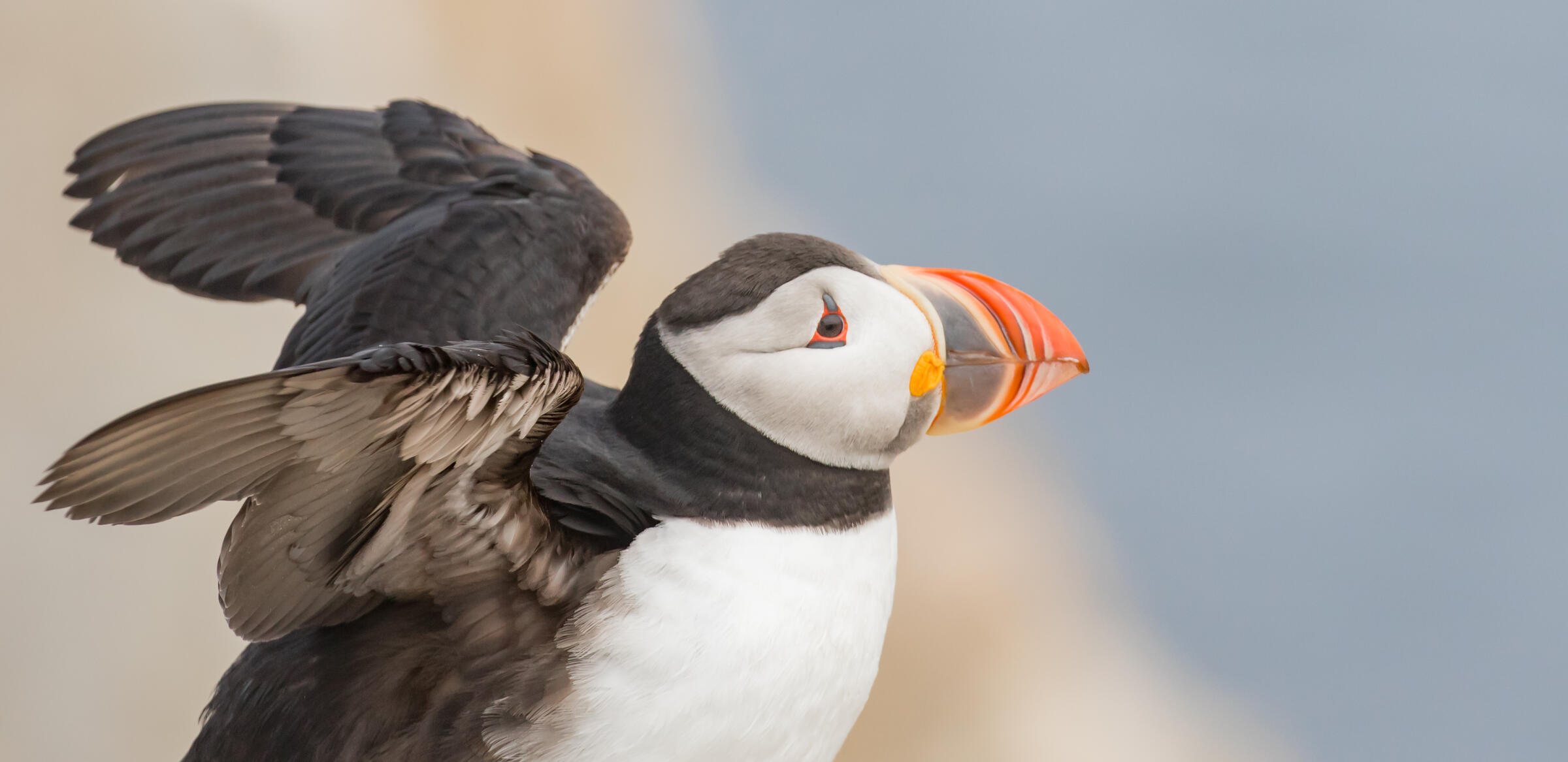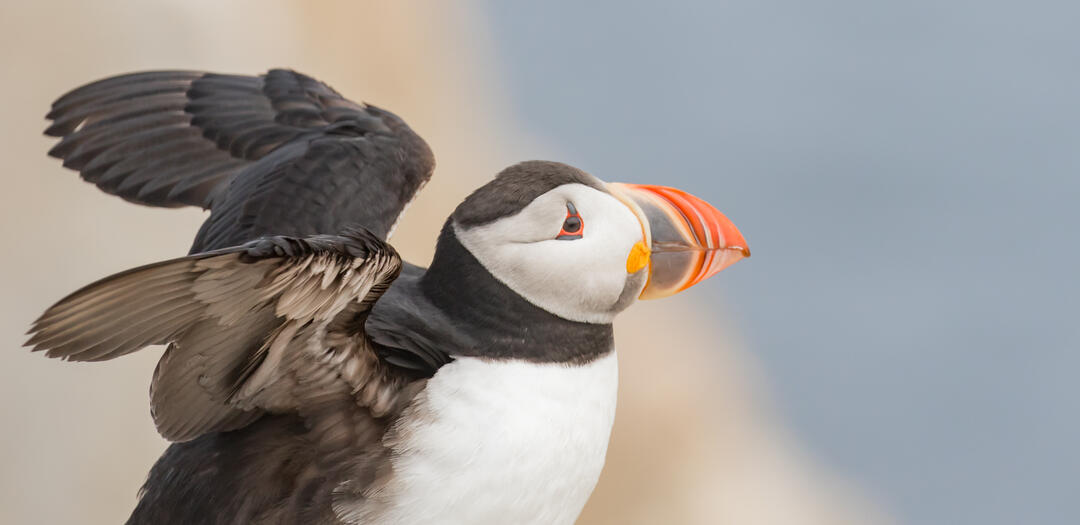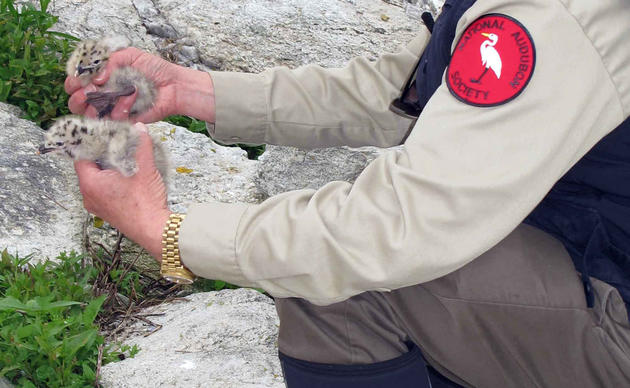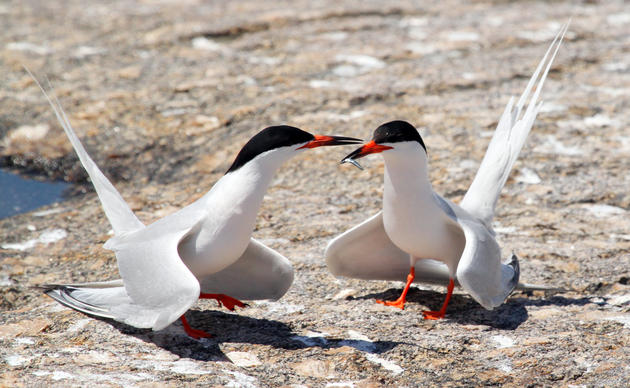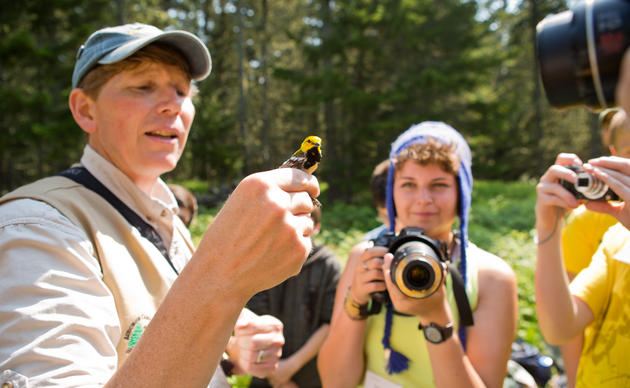In 2019, four dynamic seabird biologists came together at the Hog Island Audubon Camp to offer a new program called “Puffin Islands.” These scientists shared their personal experiences and discoveries made while studying seabirds. The course is about much more than puffins! The instructors shared inspiring presentations about seabird family life, migration, adaptations for life at sea, and the challenges that seabirds face in a world where even the most remote islands are affected by humans.
Meet the Instructors:
Annette Fayet, Ph.D.
Annette Fayet is a junior research fellow at the University of Oxford (UK), and a National Geographic Explorer. She grew up in France where she studied engineering, before moving to England where she received her M.Sc. and Ph.D. in biology at the University of Oxford. Her research focuses on the ecology of seabirds and their migratory behavior, using miniature tracking devices. She works on UK breeding seabirds (particularly Atlantic Puffins), as well as other species in the Indian and Pacific Oceans. Dr. Fayet looks for conservation implications in her research and collaborates with other researchers to help inform conservation decisions such as the location of marine protected areas.
Steve Kress, Ph.D.
Steve Kress is the founder of National Audubon Society’s Project Puffin. He previously served as vice-president for bird conservation at the National Audubon Society and director of the Hog Island Audubon Camp. His career has focused on developing techniques for managing colonial nesting seabirds. Hundreds of professional seabird biologists can trace their first interest in seabirds to internships with Project Puffin and many innovative seabird conservation methods that he developed in Maine are now standard practice worldwide. Dr. Kress received his Ph.D. from Cornell University and his Master’s and undergraduate degrees from Ohio State University. He has authored numerous books on bird watching and gardening for birds, as well as science papers about seabirds. He is co-author with Derrick Z. Jackson of ‘Project Puffin: The Improbable Quest to Bring a Beloved Seabird Back to Egg Rock’ (Yale University Press, 2015) and ‘The Puffin Plan’ for younger readers (Tumblehome Books 2020).
Don Lyons, Ph.D.
Don Lyons is director of conservation science for National Audubon's Seabird Institute. He has participated in seabird science and conservation for 20 years as a graduate student, post-doc, and assistant professor in the Department of Fisheries and Wildlife at Oregon State University. His interests include restoring seabird colonies using social attraction and understanding the relationship between seabirds and forage fish. His background as an electrical engineer and seabird biologist informs his research on tracking seabird foraging, dispersal, and migration, and assessing the impact of climate change on seabird breeding success and population resiliency. He has investigated the steep decline of Aleutian Terns in Alaska, assisted the program to restore the critically endangered Chinese Crested Tern in Asia, and resolve conflicts stemming from Caspian Terns’ consumption of threatened salmon in the Pacific Northwest.
Dr. Lyons currently gives presentations throughout the summer season at the Hog Island Audubon Camp, instructors at the Saving Seabirds session and directs the Puffins Islands session.
John Piatt, Ph.D.
John Piatt got hooked on seabirds in the 1970s while camping near a large puffin colony in Witless Bay, Newfoundland. Following stints as a naturalist at Cape St. Mary’s gannet colony, and surveying birds and whales off the coasts of Labrador and Baffin Island, he returned to Newfoundland to study the ecological relationships between capelin, cod, seabirds, and whales for his Ph.D. at Newfoundland’s Memorial University. Lured to Alaska in 1987 to study auklets in the Bering Sea, Dr. Piatt is now a senior research scientist at the USGS Alaska Science Center, and an affiliate professor at the University of Washington. His conservation-oriented research has included studies on the impacts of gill-net bycatch, algal biotoxins, plastic consumption, and oil pollution on seabirds. His research focuses on the overarching role of ocean climate in regulating the abundance and quality of the forage fish that support seabird populations.
How you can help, right now
Instructors and Staff
We have some of the most brilliant ornithologists, authors, artists, and educators as part of our staff.
Camp Sessions
Learn more about our birding and nature camp sessions for adults, teens, and families.

